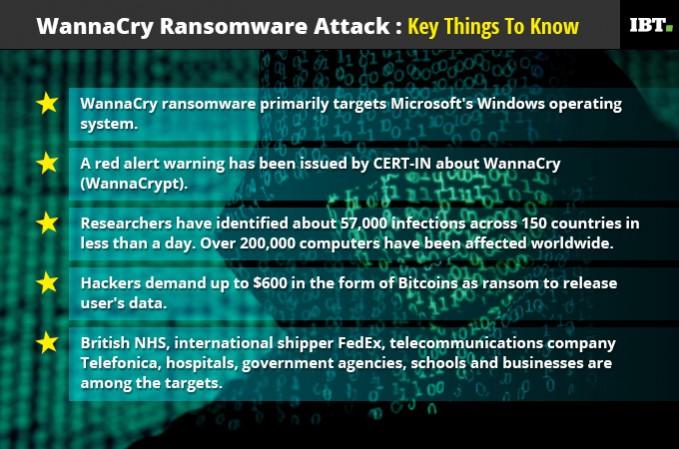
At a time when contradictory statements from cyber-security experts and the Narendra Modi government have left confused about the spread and impact of WannaCry ransomware in India, multiple reports surfaced on Wednesday claiming a fresh round of infections in the country.
The reports said that WannaCry ransomware, which has affected hundreds of thousands of computers in over 150 countries, had hit at least 10 computers at the Tirumala Tirupati Devasthanams (TTD), an independent trust which manages Tirumala Venkateswara Temple in Andhra Pradesh. Officials at TTD have also reportedly stopped using 20 other computers as a precautionary measure.
The reports quoted TTD's new executive officer Anil Kumar Singhal as saying that "all of the affected computers were in use for administrative purpose" while the systems used for ticket sales and other devotee related services remained unaffected by the ransomware.
However, when contacted by International Business Times, India, Singhal declined the reports saying that none of the computers at the trust was hit by the global cyberattack.
Asked if there was a disruption at all, another TTD official said that some of the computers at the trust were indeed affected by a virus, but it was not the WannaCry ransomware as reported earlier.
"Most of our computers are running on old operating systems. We are working with Tata Consultancy Services to upgrade those systems," the official said.
Also Read: Did 'worst-hit' India under-report WannaCry ransomware attack?
India is still clinging on to obsolete operating systems with nearly 60 percent market share for desktop Windows versions in the country being occupied by Windows 7. Many people even use older versions like Windows XP that are extremely vulnerable to the WannaCry ransomware, which doesn't target Windows 10.

The Narendra Modi government had earlier said that the ongoing ransomware cyberattack didn't have a serious impact in the country. Cyber-security experts, on the other hand, say that the malware has infected at least 45,000 computer systems across various organisations in India, raising doubts whether possible ransomware attacks are being properly reported in the country.
Meanwhile, some researchers say that the spreading of the WannaCry ransomware has stopped as the kill switch for the malware has been pressed.
However, "this is only true for the WannaCry variant that previously spread like a worm," Jakub Křoustek, a malware analyst at cyber-security firm Avast, said in a blog post.
Although the kill switch has significantly slowed down the spreading of WanaCrypt0r 2.0, researchers at Avast have noticed at least six other variants of WannaCry, containing different kill switches.
"We've even detected multiple samples where the kill switch has been removed, which means the people behind these variants want their versions to spread uncontrollably," Křoustek said.
On Monday, cyber-security firm Check Point Software Technologies also said that it had detected and stopped a new variant of the WannaCry ransomware from damaging computers by activating a kill switch in the software.

















